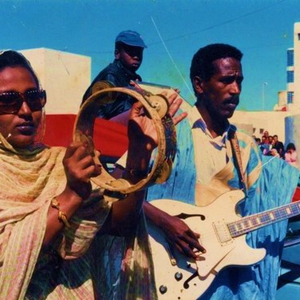
| Trackimage | Playbut | Trackname | Playbut | Trackname |
|---|---|---|---|---|
| 11389455 | Play | Eid For Dakhla | 03:45 Tools | |
| 11389456 | Play | Wazan Samat | 03:22 Tools | |
| 11389492 | Play | Eid Al Arsh | 05:23 Tools | |
| 11389457 | Play | Tirara | 05:00 Tools | |
| 11389462 | Play | Cheyla Ya Haiuune | 05:06 Tools | |
| 11389463 | Play | Fagu | 06:10 Tools | |
| 11389460 | Play | Dun Dan | 05:49 Tools | |
| 11389464 | Play | Sabah Lala | 05:29 Tools | |
| 11389458 | Play | Beatte Harab | 04:43 Tools | |
| 11389465 | Play | Min Binat Omum | 05:52 Tools | |
| 11389472 | Play | Ragsa Jaguar | 05:08 Tools | |
| 11389459 | Play | Zayna Jumma | 04:31 Tools | |
| 11389473 | Play | Mawak Lakhaal | 03:15 Tools | |
| 11389477 | Play | Tazit Kalifa | 19:45 Tools | |
| 11389478 | Play | Nabi El Mohamed | 07:37 Tools | |
| 11389467 | Play | Kar Wazan Abyad | 04:27 Tools | |
| 11389485 | Play | Ishadlak Ya Khey | 04:12 Tools | |
| 11389475 | Play | Badbada | 03:27 Tools | |
| 11389466 | Play | Zaya Koum | 03:25 Tools | |
| 11389474 | Play | Kar Lakhaal | 03:28 Tools | |
| 11389484 | Play | Kar Labyad Doueh | 04:44 Tools | |
| 11389468 | Play | Met-Ha | 03:05 Tools | |
| 11389486 | Play | Jagwar Doueh | 04:10 Tools | |
| 11389470 | Play | Aziza | 03:35 Tools | |
| 11389469 | Play | Ana Lakweri | 05:07 Tools | |
| 11389476 | Play | Waydana | 03:01 Tools | |
| 11389482 | Play | Wazan Fagu Doueh | 01:33 Tools | |
| 11389480 | Play | Lehi Teyilu | 05:09 Tools | |
| 11389471 | Play | Wazan Doueh | 06:04 Tools | |
| 11389483 | Play | Yadanat Lamayma | 03:23 Tools | |
| 11389479 | Play | Wazzan Abyad Kar | 02:21 Tools | |
| 11389488 | Play | waya waya | 04:29 Tools | |
| 52687930 | Play | Bismi Lahi Lahi Namdah | 04:29 Tools | |
| 52687931 | Play | Madam Jat Faabuni | 04:29 Tools | |
| 52687932 | Play | Beyt Alayan | 04:29 Tools | |
| 52687933 | Play | Nadi El Mohamed | 57:54 Tools | |
| 52687935 | Play | Beyt Kar Labyad | 57:54 Tools | |
| 52687934 | Play | Badbaba | 57:54 Tools | |
| 11389500 | Play | Live @ Clubtransmediale Festsaal Kreuzberg Berlin | 57:54 Tools | |
| 87307241 | Play | BORD DE MER | 57:54 Tools | |
| 11389494 | Play | Zayna Jumma 2011 | 00:00 Tools | |
| 52687936 | Play | 01_Eid_For_Dakhla | 00:00 Tools | |
| 52687937 | Play | 02_Ed_El_Arsh | 00:00 Tools |

-
- 95,028
- plays
-
- 7,394
- listners
-
- 95028
- top track count
Group Doueh is part of a family entertainment business run by Salmou Baamar (aka Doueh), a native of Dakhla, Western Sahara. The rest of the group includes vocalists Halima Jakani (Baamar's wife) and Bashiri Touballi and keyboardist Jamaal Baamar (his son). Rhythm duties are shared between collective hand claps, Halima’s tbal (a hand drum), and the keyboard’s drum programs. As a youth, Baamar listened to cassettes of James Brown and Jimi Hendrix imported from Spain. His first experiences as a professional musician were playing at local parties coincided with Mauritania’s occupation of Dakhla. You can hear both Western rock influence and Mauritanian rhythms in his music, which he’s been performing and marketing on cassette for over a quarter century throughout the Western Sahara region. Doueh plays electric guitar and an instrument called the tinidit (or tidinit), a Moorish four-stringed lute; according to an article in Wire, Baamar favors a Fender guitar run through a few pedals. Doueh’s guitar playing has a complex rhythmic underpinning, close to the Master Musicians of Jajouka or flamenco, and adheres to traditional Mauritanian modes. Record label Sublime Frequencies's Hisham Mayet located Doueh at his cassette dubbing shop, after a search up and down Morocco to find the musician responsible for “Eid For Dakhla,” which became the first track on Group Doueh's Guitar Music from the Western Sahara, their first release with Sublime Frequencies in 2007. Sublime Frequencies had this to say about the album: "If you think you’ve heard all the great electric guitar styles in the world, think again. This Saharan sand-blizzard of fine-crushed glass will grind your face to a bloody pulp..." In spring of 2009 Sublime Frequencies put together a European tour for Group Doueh and labelmate Omar Souleyman, which occasioned the release of Treeg Salaam, Group Doueh's second LP, which translates to "Streets of Peace". Treeg Salaam, like its predecessor, was culled from Doueh’s massive cassette archive. Hisham Mayet selected music for the record that was recorded between 1989-1996, which makes some of the material on the album significantly older than material on the first LP. Read more on Last.fm. User-contributed text is available under the Creative Commons By-SA License; additional terms may apply.